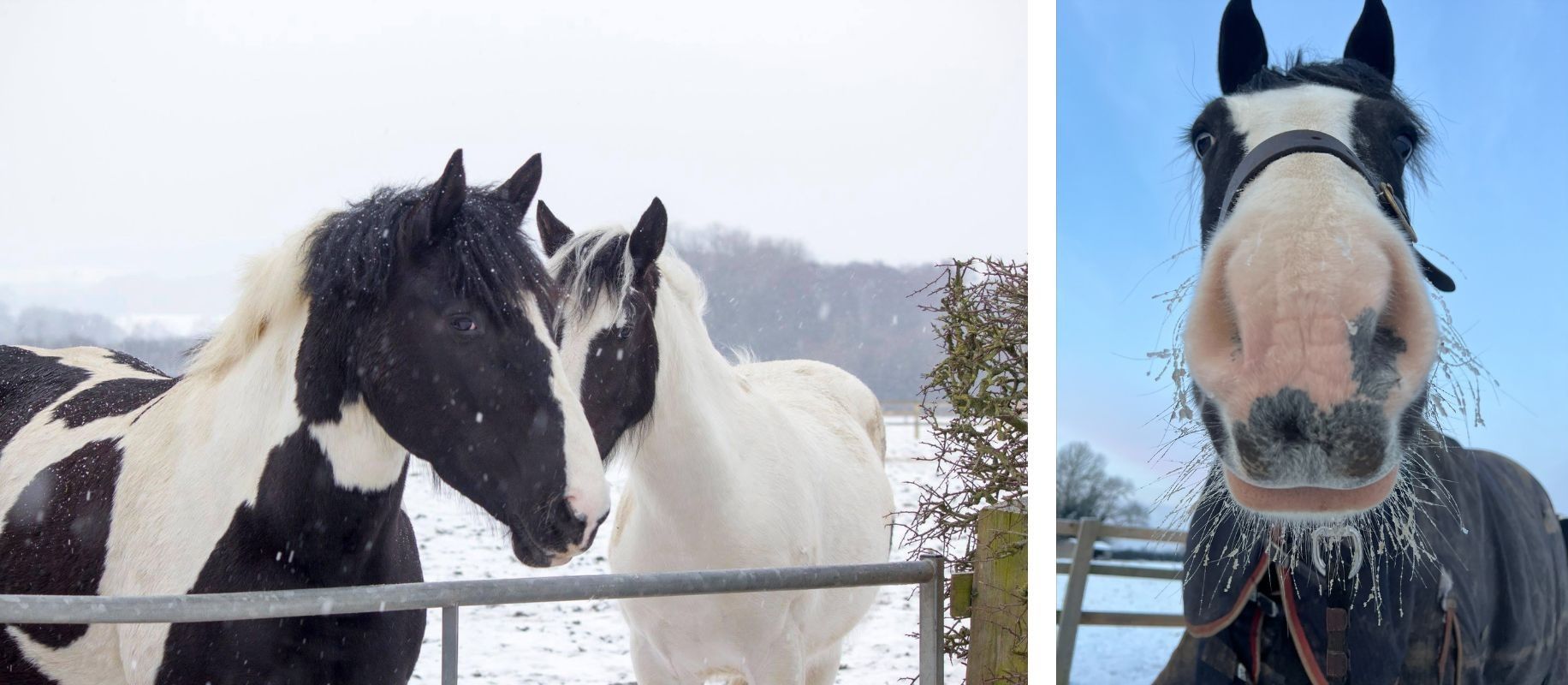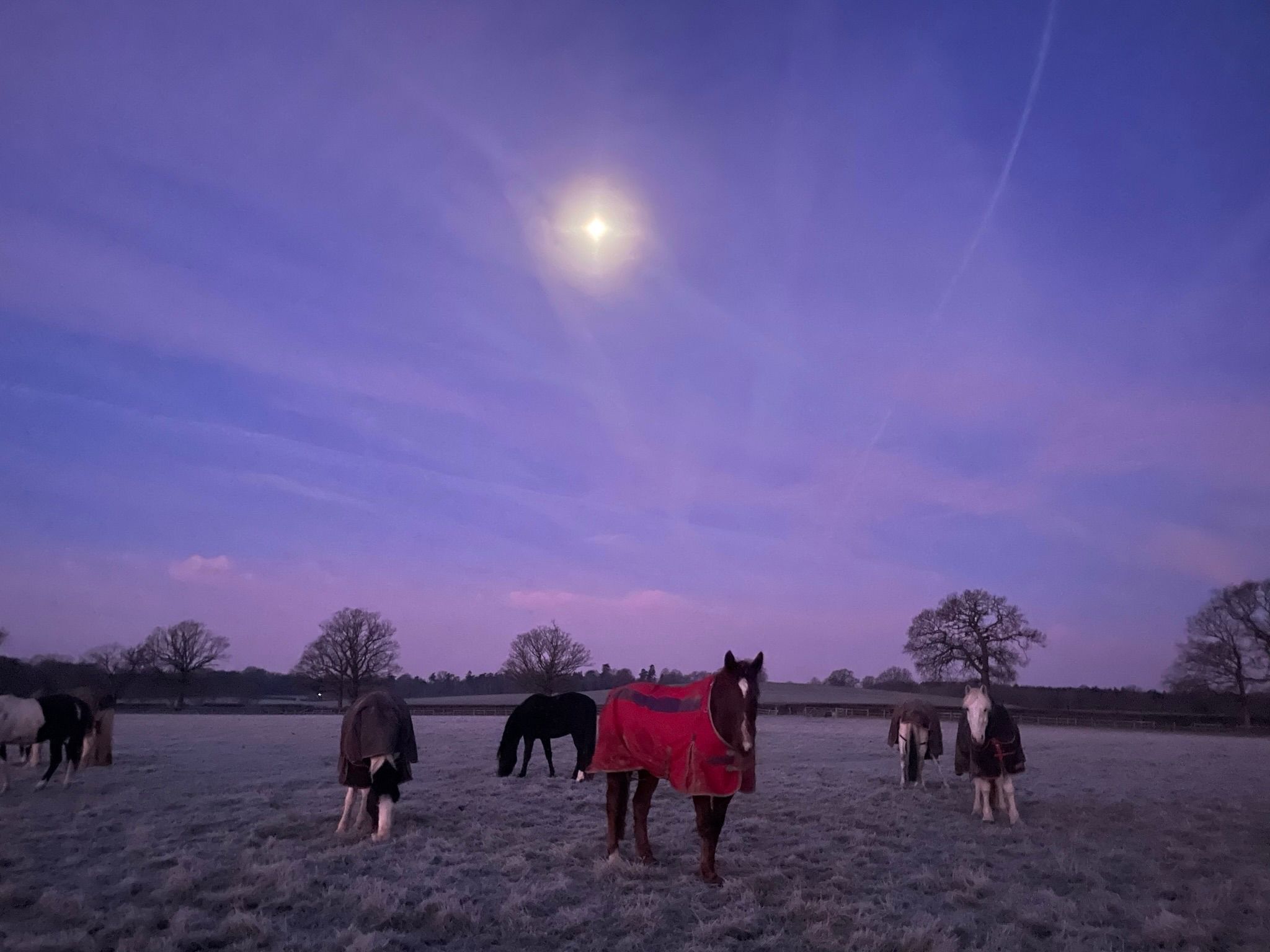Our Equine Unit at Hadlow has extensive facilities including two indoor arenas, a large outdoor arena and stabling for 64 horses, which obviously makes them a big part of daily life at the College! Our Deputy Head of Curriculum for Equine, Sarah Hankey, shares her top tips for keeping horses happy and healthy during the colder months.
As the year revolves around again, so do small changes in the way we care for horses in the changing seasons.
This revolving annual pattern might see those caring for horses digging out thicker rugs and battening down the hatches in readiness for the bitter temperatures typical of January and February in the UK.
Horses can be simple creatures, requiring not much more than food and water, shelter, and company or they can be Divas who require a higher tier of needs to be met. As an owner you hope to have the former, it will cost you less in heartache and stress as well as money!
At Hadlow College we have a variety of both, and everything in between. We aim to show the next generation of equine enthusiasts a range of methods, types, traditions and strategies for managing horses as they study across a range of Further and Higher Education Equine Programmes.
Feeding
Feeding forage (grass, hay, haylage and sometimes straw) over winter is so important, not only to maintain condition when the body is burning up calories to stay warm, but the digestion of fibre in the hind gut creates heat, so it’s like giving them an internal hot water bottle.
We can provide this as grazing (if there is any left), hay bales or mangers in the field, or as haynets, racks or piles in the stable. The Divas won’t be happy if their hay has been mixed with their bedding, or been sat around for too long though…
As an average, healthy horses should consume 2% of their bodyweight on a daily basis, with a high proportion of that being forage, depending on their exercise regime and energy needs. For the ‘good doers’ who hold their weight, feeding oat straw can be a way to provide adequate forage without the increased calories of hay and haylage.
Health Checks

Daily health checks are so important to check that horses haven’t sustained any injuries, got rugs caught on fences, and are in good health.
Picking out feet (hooves) is essential too; to check no stones or foreign objects are wedged in the hooves. The underside of the hoof is a perfectly designed hollow to get these things packed in so solid you can want a hammer and chisel to get the mud out!
If snow is on the ground this too can get packed in the underside of the hoof, and greasing the sole of the foot can help stop this.
Shelter and Warmth
Shelter should always be provided from the elements, but it doesn’t have to be a built structure.
Hedging and trees make great shelter in the lee of the prevailing wind and can provide a range of varying leaves and berries which can help meet the horse’s medicinal as well as nutritional needs. Horses are able to self-select medicinal compounds in foliage, it is called zoopharmacognosy, and can help older horses in particular, but do check no poisonous species are within reach.
In terms of warmth, horses were living outside in a range of conditions before humans domesticated them, but domesticate them we did, and through evolution some breeds struggle to cope in different climates.
If a horse grows a thick enough coat and maintains body condition over the Winter they likely don’t need a rug. However if a horse gets clipped to help reduce sweating during exercise, or hasn’t a thick coat, they will benefit from rugs. These rugs can be layered with blankets and duvets to maintain body condition.
It is worth exploring whether it is the horse who needs this, or the owner who thinks they do, and how attached you are to your goose down duvet…because you won’t want it back!
The next revolution will be Spring, with warmer days, more daylight, and the start of new growth. Just keep telling yourself that, as you scrape chunks of mud off your boots and head into the warmth at the end of the day, leaving a pile of wet coats and gloves behind you.
To find out more about studying Equine at Hadlow College visit the Equine Management subject page of the Hadlow College website.

